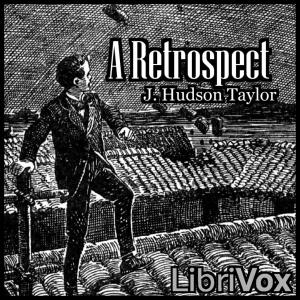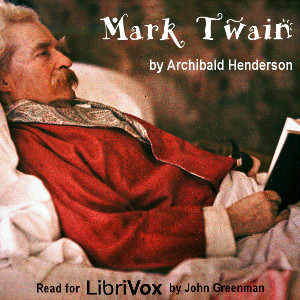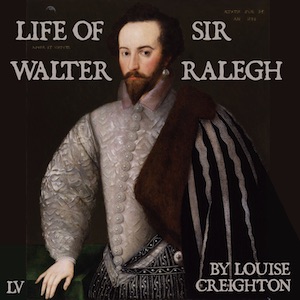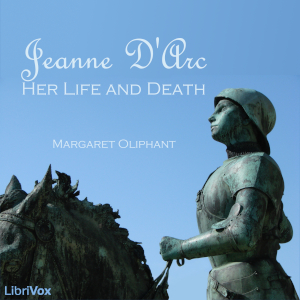A discussion about the life and works of the playwright Arthur Wing Pinero. The perfect accompaniment to the plays by Pinero available here at Librivox. (Refer to the etext for cast lists of plays - through 1901 - mentioned in the Section 12 Bibliography.) - Summary by ToddHW
12 episodes
William Holden Hutton (1860-1930) was a British historian and Dean of Winchester Cathedral. In this slim volume, Hutton writes of the long period of feudal anarchy following the death of King Henry I in 1135, during which Henry's implacable daughter, Mathilda, battled the ineffectual King Stephen. Hutton then describes the turbulent reign of the great King Henry II, the reigns of Kings Richard, John, Henry III, and of the first two Edwards, rulers who whether weak or strong, rigid or resourceful, were grimly opposed by their powerful barons. - Summary by Pamela Nagami
8 episodes
This volume by the British historian J.H.B. Masterman (1867-1933) is a short survey of the first four centuries after the fall of Rome. The author writes of Theodoric, King of the Ostrogoths, who sought to impose order on a shattered Italy, of the rise of the Franks under Clovis, and of the resurgence of the Eastern Empire under Justinian and his general, Belisarius. At the close of the book, Charlemagne's descendants are wrangling for power among themselves, while, writes Masterman, from "the north came the Norsemen, ravaging and plundering along every river valley which their long ships could sail; from the south came the Saracens, the pirates of the Mediterranean, and ... a foe more fierce and implacable still appeared on the eastern frontier in the Magyars or Hungarians." - Summary by Pamela Nagami
25 episodes
As far as anyone has been able to establish, Will Clemens was NOT related to Sam Clemens (Mark Twain), though they did become acquaintances. The 200-page biography Will Clemens wrote and published himself may have been the earliest full-length study of MT. It was published July 1,1892 as "No. 1" in a paperback series called "The Pacific Library," price 25¢, and did well enough to be republished in 1894 by a publisher in Chicago. Throughout the book Clemens relies mainly on other writers' previously published work. (summary by John Greenman)
12 episodes
Abraham Lincoln: A History is an 1890 ten-volume account of the life and times of Abraham Lincoln, written by John Nicolay and John Hay, who were his personal secretaries during the American Civil War. Volume 6 chronicles Lincoln's life in 1864, including the battles of that summer and Lincoln's reelection. (Summary adapted from wikipedia by Ann Boulais)
20 episodes
Abraham Lincoln: A History is an 1890 ten-volume account of the life and times of Abraham Lincoln, written by John Nicolay and John Hay, who were his personal secretaries during the American Civil War. Volume 10 chronicles Lincoln's life in early 1865, including his assassination and the events following. (Summary adapted from wikipedia by Ann Boulais)
18 episodes
Beatrice Lees writes that the history of the period of the Middle Ages from 918 to 1273 is that of "a heroic period, the age of feudalism and monasticism, of chivalry and the Crusades." The era opened "with gloomy prospects for Western Christendom. On every side danger threatened" from the Vikings, the Saracens, and the Magyars. But better things lie in store in this little volume as the Capetian dynasty is founded in France, the Holy Roman Empire becomes the political center of Europe under Frederick Barbarossa, the Papacy attains its greatest influence under Innocent III, and Frederick II, called "stupor mundi," the wonder of the world, rules the cosmopolitan Kingdom of the Two Sicilies. - Summary by Pamela Nagami
28 episodes
In the spring of 1850, while the United States was polarized over the slavery debate and Daniel Webster was negotiating the compromise of that year, the outspoken abolitionist, feminist, and journalist, Jane Grey Swisshelm (1815-1884) unleashed a congressional sex scandal. Frustrated by what she saw as the Massachusetts senator's surrender to the Southern Slave Power, she published an article alleging Webster's marital infidelities with women of color. As a result of the media storm that followed, Swisshelm lost her job at the New York Tribune. This is but one of the many episodes found in her 1880 autobiography, "Half a Century," which is a narrative of the frontier, of the fight against slavery, and of Swisshelm's fearless, compassionate, and innovative work as a surgical nurse treating Union soldiers who had suffered the most terrible wounds of war. (Pamela Nagami, M.D.)
81 episodes
In Benjamin Franklin's lifetime, he kept good record of his life and travels, and although Franklin was never a president, he still plays a crucial part in our American history. (Summary by Elijah Fisher)
21 episodes

In 1869, the Atlantic published Stowe's article, The True Story Of Lady Byron's Life, a brief exposé of the famous poet Lord Byron's sordid private life which had led to a separation from his wife and drove him out of England, as told to her by Lady Byron herself before her death. Stowe wrote this article long after Lady Byron's death, when Lady Byron‘s impeccable reputation was being smeared across Europe by Byron's influential literary friends, and her trustees were doing nothing to defend her.
Criticism against the article raged in the American and European press and damaged the Atlantic's circulation, but Stowe remained confident, and the following year, she expanded her article into this full-length exposé. Sprinkled throughout with Byron's biting poetry, Lady Byron's and other notable correspondence, and Stowe's outrage at the way women were belittled and treated as property during the Victorian period, the invectives in this book are, even by modern standards, intense! (Summary by Michele Fry, Soloist)
28 episodes
Alfred Thayer Mahan, American historian and author, whose The Influence of Sea Power Upon History, 1660–1783 became instrumental in the formation of naval strategy by many nations in the 20th century, here recounts his observations and experiences over forty years of active duty as a naval officer. (Summary by Delmar H. Dolbier)
24 episodes
"It is many years since Dr. Samuel Johnson advised me to get a little book, and write in it all the Anecdotes which might come to my knowledge, all the Observations which I might make or hear, all the verses never likely to be published and in fine everything which struck me at the time. Mr. Thrale has now treated me with a Repository, and provided it with the pompous title "Thraliana." I must endeavour to fill it with nonsense, new and old."
Selections from the intimate record of her life from 1776 to 1809 by the hostess and friend of Dr Johnson (and the friend of his friends) selected and edited with commentary by Charles Hughes.
- Summary by barbara2
4 episodes
Join James Hudson Taylor on the God-led journey through his calling, time of preparation, and life work in China. This British Christian missionary founded China Inland Mission (CIM), now known as OMF International. - Summary by HannahMary
20 episodes
An authorized biography of Lillian Gish, the renowned silent film star known in her heyday as the First Lady of American Cinema. Albert Bigelow Paine chronicles Gish's early life, her close relationship with her sister Dorothy, her rise in film as an actor with Biograph Studios and muse of D. W. Griffith, her short time as a contract actor with MGM, and her return to the stage in the advent of the talkies. Peppered throughout with intimate and amusing anecdotes, this is a must-read for film historians, silent film enthusiasts, and admirers of one of cinema's legendary talents. (Tomas Peter)
58 episodes
Many writers have penned studies of Mark Twain's life and work through the years. Twain authorized this biography, having met and hosted the writer, Archibald Henderson, on a few occasions. Henderson considered this work to be an homage to one of his biggest idols, who guided him through his youth and adolescence. He writes, "It is an appreciation originating in the heart of one who loved Mark Twain’s works for a generation before he ever met Samuel L. Clemens. It is an interpretation springing from the conviction that Mark Twain was a great American who comprehensively incorporated and realized his own country and his own age as no American has so completely done before him." - Summary by John Greenman
9 episodes
This brief sketch of the holy life and marvelous achievements of a great inheritor of the spirit of Saint Francis of Sales, Saint Don Bosco is intended only to stimulate souls to a wider study of this loving Apostle of Youth, and so to a knowledge and reverence and appreciation, we dare to hope, which will urge them onward in the ways of holiness, and make them ardent and practical co-operators in the divine work of saving the young — the most pressing need of our times — initiated by the Founder of the Salesian Society, and brought to wonderful issues through the miraculous power of God and the loving intervention of Mary, Help of Christians.
Saint John Bosco was canonized in 1934 – thus in this book, which was published in 1916, he in only referred to as Venerable. (Summary adapted from the forward of the book)
33 episodes

April, 1865. The country was in turmoil. The U.S. Civil War had come to an end, thousands of Union prisoners of war had recently been released, and President Lincoln had just been assassinated. The steamship 'Sultana' left New Orleans on April 21st, traveled to Vicksburg, Mississippi where it took on 1,965 federal soldiers and 35 officers, all recently released prisoners of war, most of them held at the prison camps of Cahaba (or Cahawba, near Selma, Alabama) and Andersonville (in southwest Georgia), and now finally headed for their homes.
The 'Sultana' arrived in Memphis, Tennessee on April 26th and headed north toward Cairo, Illinois carrying over 2,100 passengers, but designed for a capacity of only 376. At approximately 2:00 a.m. of the 27th, mere hours after the assassination of John Wilkes Booth, the 'Sultana' mysteriously exploded while steaming about 7 miles north of Memphis, killing over 1,500 on board (estimates vary). The sole reason this incident received such scant attention at the time, and ever since, is the fact that the country was understandably absorbed in the recent assassinations. Subsequent inquiry into the 'Sultana' disaster would uncover some startling revelations into its cause, some believe leading directly to the topmost levels of the U.S. Government. The loss of the 'Sultana' was the greatest maritime disaster in U.S. history, up until the bombing of Pearl Harbor. This book, composed by Chester Berry, one of the survivors, is unique in that it gives firsthand account from well over 100 of the survivors of the tragedy in their own words.
Note - The online e-text (link provided) includes 3 lists for reference that are not included in this audio release:
1 - An official list of prisoners of war on the Sultana, including company served with
2 - Persons known to have been on board the Sultana, but not reported
3 - Name, Company, Regiment, and present (1892) residence of living survivors ( Roger Melin)
140 episodes
Mary Prince was born into slavery in the West Indies. As a free woman in England she wrote her memoirs, which sold well and supported and publicised the anti-slavery movement.
NB This book contains racial vocabulary and refers to physical and sexual abuse that some listeners may find offensive or distressing. (Newgatenovelist)
10 episodes
Until recently, this work has been considered the "go-to" bio of Mark Twain. Albert Bigelow Paine (July 10, 1861 – April 9, 1937) was an American author and biographer best known for his work with Mark Twain. This recording of Paine's exhaustive biography covers Twain's personal and literary life in detail, heretofore unapproached. - Summary by John Greenman and Wikipedia
105 episodes
The story of Vaninka, generally regarded as the most fictionalized of Dumas’ Celebrated Crimes series, occurs during the short and eccentric rule of Emperor Paul I of Russia. Vaninka is a general’s daughter whose love for one of her father’s officers leads to tragic death, savage crimes and perversions of justice. - Summary by jvanstan
4 episodes
In this interesting autobiography we get a very candid look into the life of Rose Cohen, a Russian Jewish girl who immigrates from Russia to the Lower East Side of New York city with her family.
From the deplorable conditions in the garment sweatshops, life in the tenements, the setbacks due to poor health and the slow weakening of the family's faith she provides us with a vivid insight into the hopes and frustrations of an immigrant Jewish family adapting to American life. (Celine Major)
23 episodes

William Frederick "Buffalo Bill" Cody is one of the legends of the American western frontier. As a teen he rode for the pony expressed and then drove for the Union Army during the U.S. Civil War. He later rejoined the army as a scout and was awarded the medal of honor for his valor during the Indian Wars. His fame became worldwide, however, through his flamboyant Wild West shows which toured not only across the American West but through England and Europe.
John M. Burke served as Cody’s publicist and promoter for the Wild West shows, propelling him into celebrity status. From his preface to this biography:
"An association of some thirty years with the subject of these pages, a familiarity with his history gained by opportune meetings and conversations with comrades now living, and those since dead—who were witnesses of the events that assisted to make the individual prominent—makes me feel it a public duty to accede to the publisher’s request to compile a short, sharp, and veracious account of the unique history of this picturesque character. The compiler of the accompanying pages has attempted to present to the reader, in a terse, compact compendium of facts, the story of a career that, if given in a detailed biography, would absorb volumes, believing that owing to his prominence at home and abroad the public desire some authentic knowledge of the notable events in his career. In fact, here are presented a few plain truths, unadorned, for the benefit of those too occupied to have heretofore learned the story and triumphs of the frontier lad of nine years, from the wild Western scenes of Kansas and Nebraska, from the prairies of the Platte to the parlors of the East and the palaces of Europe." - Summary by Larry Wilson
31 episodes
While there are many general histories of the decline and fall of the Roman Republic, the Oxford historian, Charles Oman, writes that his little book is rather "a series of studies of the leading men of the century, intended to show the importance of the personal element in those miserable days of storm and stress." We hear of the tragic struggle of the brothers Gracchi to make farm ownership possible again for ordinary Romans, of Marius's reform of the army, and of the ruthless proscriptions of Sulla. Next comes the real estate tycoon, Crassus, who buys his way into politics only to lose his head in Syria, Cato clinging desperately to lost republican ideals, and Pompey a military prodigy greedy for fame. The volume ends with Julius Caesar, who Oman writes "did much to shape the future destinies of the world" so that even in "the darkest times of the Middle Ages his story was not forgotten." - Summary by Pamela Nagami
28 episodes
This biography of Abraham Lincoln focuses on his practice as a lawyer. (Summary by MaryAnn)
26 episodes
Henry Martyn (1781-1812), a brilliant and ambitious young student in Cambridge, England, was led by God to be a missionary to India and Persia. While pastoring, starting schools, and teaching the locals as well as Europeans through his role as chaplain for the East India Company, he worked on several far-reaching Bible translations. All this despite much weakness and illness due to harsh climates and difficult travels. This short life of 31 years is a testament to the power of God to work through one life fully dedicated to Him. (Summary by HannahMary)
15 episodes
At twenty-four, Clifford Beers, Yale graduate and son of an old New England family, was confined to a mental institution, where he experienced and saw terrible mistreatment of patients. Eight years later, after his time in another institution, he wrote A Mind That Found Itself, exposing the inhumane conditions of these institutions. Beers went on to found an outpatient center for mental health, the Clifford Beers Clinic, in 1913, and is considered the founder of the American Mental Hygiene Movement. - Summary from Wikipedia)
33 episodes
James Cook (1728-1779), British explorer, navigator, cartographer, and captain in the Royal Navy was the son of a farm laborer. Apprenticed to a grocer, he ran away to sea. He saw hard service in the Baltic as a merchant seaman, while applying himself to the study of mathematics, navigation, and astronomy. In 1755 he volunteered for the Royal Navy, working his way up to captain. This little biography by Walter Besant, chronicles Cook's three voyages of discovery and his violent death in Hawaii. Cook replaced vague mythology with accurate observations of people and places, animals and plants. Of his achievements Besant writes, "We seek St. Brendan's Island and Terra Australis Incognita; and we find New Zealand and Cape Horn, the Continent of Australia, and the great Pacific Ocean, studded with islands as the firmament is studded by the stars." (Pamela Nagami, M.D.),
25 episodes
En este libro Ruben Darío nos narra su vida desde que era un niño, hasta las épocas en las que comenzó a escribir algunos de sus libros mas conocidos. En el intermedio nos narra experiencias vividas a lo largo de su travesía por el mundo así como sus asignaciones en diversos cargos que le permitieron conocer distintas realidades a nivel mundial y cuyas narraciones nos relata. En algunos capítulos también nos da una pincelada de sus inicios como poeta y la experiencia de sus primeros amores, declarando incluso las circunstancias que le mantuvieron separado de su esposa en el momento de su fallecimiento. Este libro sin duda nos permite conocer mejor a este gran autor desde sus propias palabras y experiencias. (KendalRigans)
13 episodes

W.R.W. Stephens, the Anglican Dean of Winchester, writes a short, lively biography of the great church reformer, Hildebrand of Sovana (1015-1085), afterwards Pope Gregory VII, setting his life within the larger context of the struggle for dominance between the Holy Roman Empire and the Papacy during the Middle Ages. The roots of the conflict can be traced to the alliance made between Pope Stephen II and his successors and the Frankish King Pippin and his son Charlemagne to break the power of the Lombard Kingdom in Italy. Later emperors sought first to reform and then to dominate the Papacy, but they finally met their match in Hildebrand, leading to the famous confrontation between Pope and Emperor on the snowy steps of Canossa Castle. Facing an imperial invasion, Pope Gregory took the fatal step of summoning his fierce Norman allies. They sacked and burned Rome and carried Hildebrand off to Salerno where, his body weak but his spirit unbowed, he breathed his last crying, "I have loved righteousness and hated iniquity--therefore I die in exile." After Hildebrand's death, his ally Duchess Matilda, the greatest power in northern Italy, continued the struggle with the tragic Emperor, Henry IV, over investiture and reform, a conflict which was only settled under his perfidious son, Henry V. (Pamela Nagami)
26 episodes
Josephine Brown's Biography of an American Bondsman faithfully follows the trajectory of her father's life as previously explored in his own narratives. She distills and summarizes the major revelatory moments of his autobiography while she also incorporates new anecdotal information and offers her own perspective on Brown's life. Whereas her biography draws frequently from previously published autobiographical accounts, the narrative style and comic flourishes add interest and value to the text. Andrews observes that her biography's primary contribution to the "lore of William Wells Brown" may be the insight it offers into the rhetorical tactics used by both father and daughter in "their war of words against slavery."
12 episodes
In this short book, the British Naval historian, Julian Stafford Corbett, chronicles the adventurous career of Sir Francis Drake (1540-1596), the farmer's son who became Queen Elizabeth's most feared privateer and her most daring and resourceful naval officer. In his quest for the gold and silver of Spanish Peru, he rounded Cape Horn, losing men and ships in that "enchanted void, where wind and water, ice and darkness, seemed to make incessant war." After capturing the treasure ship from the astonished Spaniards, he circumnavigated the globe. As King Philip of Spain amassed his Armada, Drake demonstrated how a naval power, attacking shipping in port and at sea, could cripple the enemy's credit and commerce. Corbett writes of Drake that at "its fullest flood he stemmed the tide of Spanish Empire. It was no less a thing than that." (Pamela Nagami)
26 episodes
This biography of Puccini was written while the composer was at the height of his career. Besides the usual biographical information, the author summarizes and discusses Puccini's works to this point, including Le Villi, Edgar, Manon Lescaut, La Boheme, Tosca, and Madama Butterfly (which was in production at the time of this writing).
- Summary by Ciufi Galeazzi
9 episodes
Born into slavery, Frederick Douglass became one of America's great icons. He escaped slavery to become one of our great abolitionists, statesman, writer, orator, all around social reformer and intellectual of our time. He was born in 1818 in the state of Maryland.
13 episodes
A short biography of Saint Paul, the Apostle of the Gentiles, from the time of his persecution of the Christians to his martyrdom. (Summary by Maria Therese)
11 episodes
This is a young person's biography of Abigail Adams that will appeal to readers of all ages. In the author's own words, "I am not writing a history; far from it. I am merely throwing on the screen, in the fashion of today, a few scenes to make a background for my little pen-picture-play. " - Summary by Ciufi Galeazzi
12 episodes
Edward the Black Prince (1330-1376) was the eldest son of King Edward III of England. He commanded the vanguard at the Battle of Crécy and, skillfully deploying his troops, defeated a much larger French force at the Battle of Poitiers. In this short biography, Louise Creighton sets Edward's life within the context of his times and portrays both the bright and the dark sides of this paragon of chivalry. (Pamela Nagami)
21 episodes

For Chesterton, Francis of Assisi is a great paradoxical figure, a man who loved women but vowed himself to chastity; an artist who loved the pleasures of the natural world as few have loved them, but vowed himself to the most austere poverty, stripping himself naked in the public square so all could see that he had renounced his worldly goods; a clown who stood on his head in order to see the world aright. Chesterton gives us Francis in his world-the riotously colorful world of the High Middle Ages, a world with more pageantry and romance than we have seen before or since. Here is the Francis who tried to end the Crusades by talking to the Saracens, and who interceded with the emperor on behalf of the birds. Here is the Francis who inspired a revolution in art that began with Giotto and a revolution in poetry that began with Dante. Here is the Francis who prayed and danced with pagan abandon, who talked to animals, who invented the creche. I read this book as a young man and not only did it introduce me to the amazing world of Chesterton, but it was a revelation of how an entire culture could be captured in a slim volume. (summary by Phil Chenevert, Wikipedia and various other PD sources)
10 episodes
This is the first and only authorized biography of G.K. Chesterton, written by his friend, Maisie Ward.
Gilbert Keith Chesterton (1874 – 1936), was an English writer, poet, philosopher, dramatist, journalist, orator, lay theologian, biographer, and literary and art critic. He wrote around 80 books, several hundred poems, some 200 short stories, 4000 essays, and several plays. Chesterton is well known for his fictional priest-detective Father Brown, and for his reasoned apologetics. He converted from Anglicanism to Catholicism in 1922. (Summary by Maria Therese, partially adapted from Wikipedia)
49 episodes
The life of Frederick Douglass, recorded in the pages which follow, is not merely an example of self elevation under the most adverse circumstances; it is, moreover, a noble vindication of the highest aims of the American anti-slavery movement. (Introduction)
26 episodes
Catherine Booth (1829 – 1890) was the wife of William Booth, the founder of the Salvation Army in England. She was a full-partner with her husband in the ministry and work of the movement which from the beginning welcomed women into full ministry and offices of the church. Her influence set the tone for much of the Army's ground-breaking work. Mildred Duff presents here a short but thorough account of Catherine's life and ministry. - Summary by Larry Wilson
13 episodes
In "Among the great masters of the drama; scenes in the lives of famous actors; thirty-two reproductions of famous pictures with text", Walter Rowlands introduces us to the most famous playwrights and actors that might be seen on the London stages in the 19th century. Many of the playwrights mentioned are very famous until today, like Shakespeare and Molière, some are today less well-known. Especially interesting are the short biographies of the stars of the stage, which may in some cases remind you of contemporary actors. - Summary by Carolin
33 episodes
Sir Walter Ralegh (c. 1552-1618), English soldier, explorer, courtier, writer, and poet was one of the most notable figures of the Elizabethan era. Louise Creighton's short biography follows him from the wars in Spain to the jungles of Guiana. Ralegh sparkles in a court riddled with intrigue and constrained by attendance on the brilliant, imperious Elizabeth and on her successor, that rigid mediocrity, James. During his long confinement in the Tower of London, Ralegh conducted chemical experiments and wrote a ''History of the World.'' Everyone knows that things did not end well for Sir Walter, but time has not tarnished the charisma of his life. Creighton writes, ''There was no field of activity then open to men into which he did not enter...In an age remarkable for its varied forms of intellectual vigour, he represents with wonderful many-sidedness the different interests which then absorbed men's minds.'' (Pamela Nagami, M.D.)
28 episodes
Mark Twain (Samuel Clemens) and William Dean Howells were friends for 44 years. Their personal and professional relationship is considered by many to be one of the most important in American literature. Howells published his famous "My Mark Twain" in the same year Clemens died, 1910. A few years earlier, Clemens wrote this "remembrance" and "appreciation" of the man who stuck with him through the ups and downs of his long literary journey. (John Greenman)
26 episodes
The story of Jeanne d'Arc, or Joan of Arc , has passed into folklore and has been retold by many. The young teenager was sent by an as-yet uncrowned Charles VII of France to relieve Orleans from siege during the 100 Years' War with England, following visions she claimed to have received. After just nine days, she led the French army to victory and was subsequently burned at the stake for heresy. Later cleared of all charges, she was canonized in 1920. - Summary by Lynne Thompson
22 episodes
Have you ever wondered how your favorite author started on his or her writing career? Did they launch themselves wholeheartedly into literature? Did they slave away every evening after a hard day at the office? Did they devote their golden years to reflect on a life well-spent? Some faced rejection while others found almost instant success. In this volume, we learn from the authors themselves what launched their literary careers... Bret Harte, Arthur Conan Doyle, R.M. Ballantyne, H. Rider Haggard and many other favorites contributed their stories. - Summary by Lynne Thompson
23 episodes
Excerpt from Preface: Their patriotic sacrifices were made with an enthusiasm that showed the earnest spirit ready on every occasion to appear in generous acts. Some gave their own property, and went from house to house to solicit contributions for the army. Colors were embroidered by fair hands, and presented with the charge never to desert them; and arms and ammunition were provided by the same liberal zeal. They formed themselves into associations renouncing the use of teas, and other imported luxuries, and engaging to card, spin, and weave their own clothing.
16 episodes
This short, engaging volume summarizes the life of a priest who, intending to spark a lively academic debate by nailing 95 theses on a church door, unwittingly sets the continent aflame with the 1517 Reformation of the Catholic Church. - Summary by Elyse J. Wood
9 episodes
This volume celebrates stories of great heroes from the pages of history from Moses and David through Clara Barton and Henry Longfellow. It is divided into nine sections: Mighty Men of Long Ago, Heroes of the Middle Ages, Four Leaders in the Old World, Discoverers and Explorers, Colonists and Pioneers, Patriots of the Revolution, Winners of the West, Famous Inventors, and The Greatest Americans, It is written from a distinct Western and American point of view, but each chapter is a short summary of these people deemed “heroes.”
John Burnham was chair of the History and Social Sciences Department at Western State Normal School and Western State Teachers College. He was a nationally known history and social studies educator, and author or co-author of six elementary and secondary U.S. history textbooks that were widely used throughout the United States during the 1920s and 1930
- Summary by Larry Wilson
62 episodes
Ralph Keeler failed as a novelist, but this autobiography reflects a life well-lived with humor and adventure. Keeler was in the same literary circle as satirist Bret Harte, novelist Charles Warren Stoddard, editor Thomas Bailey Aldrich, and essayist William Dean Howells. He so impressed Mark Twain that Twain wrote an essay about him called "Ralph Keeler". In 1873, on his way to Cuba, he reportedly was thrown overboard by a Spanish loyalist who objected to his backing of the revolutionary, anti-Spanish movement. - Summary by John Greenman
25 episodes
The Wars of the Roses, 1377-1471, were a series of English civil wars fought for the control of the throne of England between two rival cadet branches of the House of Plantagenet, Lancaster and York. The Scottish historian, Robert Balmain Mowat (1883-1941) writes that these wars saw "the death of the old England and the beginning of the new." But they also saw the emergence of great personalities: the noble Richard of York, Warwick the Kingmaker, King Edward IV, indolent and energetic by turns, and his relentless opponent, Margaret of Anjou, a true she-wolf of France. (Summary by Pamela Nagami, M.D.)
33 episodes

















































